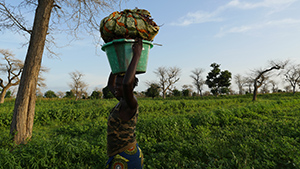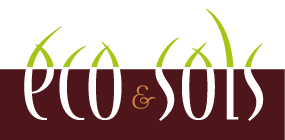 Agricultural Intensification and Soil Carbon Sequestration in Tropical and Temperate Farming Systems
Agricultural Intensification and Soil Carbon Sequestration in Tropical and Temperate Farming Systems
The project DSCATT addresses three interrelated scales of fields, farms or territories and operates at four study sites in Sub-Saharan Africa and in Mediterranean region of France.
Study sites : Senegal, Zimbabwe, France, Kenya
Questioned on the 4/1000 initiative on soil carbon (C) sequestration to face climate change (CC), the DSCATT project proposes to explore the potential for sequestering C in cultivated soils, taking into account the sustainability of agricultural practices in the context of global changes
DSCATT will link the knowledge on processes governing the soil carbon sequestration and farmers' and communities’ multiple objectives and constraints. At field level, research focuses on how biomass production and soil C sequestration relate, in different soil and climate conditions. The C balances under different practices will be assessed. The processes regulating the forms and residence time of C in soils at the soil-plant interface will be studied, including the analysis of interactions between nutrients and C storage, the role of deep roots and in soils with contrasting storage potentials. At the farm scale, DSCATT research will focus on farmers' practices (for crops, livestock, forestry…) and assess the impacts of farmers' practices on their objectives (income, food security…), taking into account their main constraints (cash, labour…). The social and economic determinants of farmers’ decisions and of trade-offs between farm activities will be considered. At the territory (or farmers' network) level, the different compartments of agroecosystems and the organic matter flows will be studied. The project will assess several possible changes and their impacts on soil C sequestration dynamics, economic performance of farms and food security.
This scientific knowledge and the viewpoints of the farmers involved will be shared and used for a transdisciplinary assessment of several C sequestration strategies in agricultural soils. Considering changes and uncertainties, a multi-criteria and prospective evaluation approach is proposed. It will allow iterations between evaluation and redefinition of strategies to cope with global changes in agriculture. The sharing and dissemination of the knowledge enriched by the project will target several audiences (farmers, students and teachers, policy makers) through a variety of communication media and assessment tools.
Date
2019-2023
Partenaires
IRD: Eco&Sols Functional Ecology and Biogeochemistry of Soils and Agrosystems.
Cirad: Eco&Sols, Aida Agroecology and Sustainable Intensification of Annual Crops, Selmet Mediterranean and Tropical Livestock Systems, Green Management of renewable resources and environment.
Inra: Eco&Sols, System Tropical and Mediterranean Cropping System Functionning and Management, CEE-M Center for Environmental Economics—Montpellier.
ISRA Agricultural Research Senegalese Institute,
Agroof Société coopérative et participative spécialisée en agroforesterie
UZ Crop science and Social Sciences Departments of University of Zimbabwe
Embu University, Kenya
IITA, The International Institue of Tropical Agriculture, Kenya.
Financement
Agropolis Fondation
Fondation Total
Contact et Informations
Dominique Masse, Eco&Sols, IRD Montpellier.






